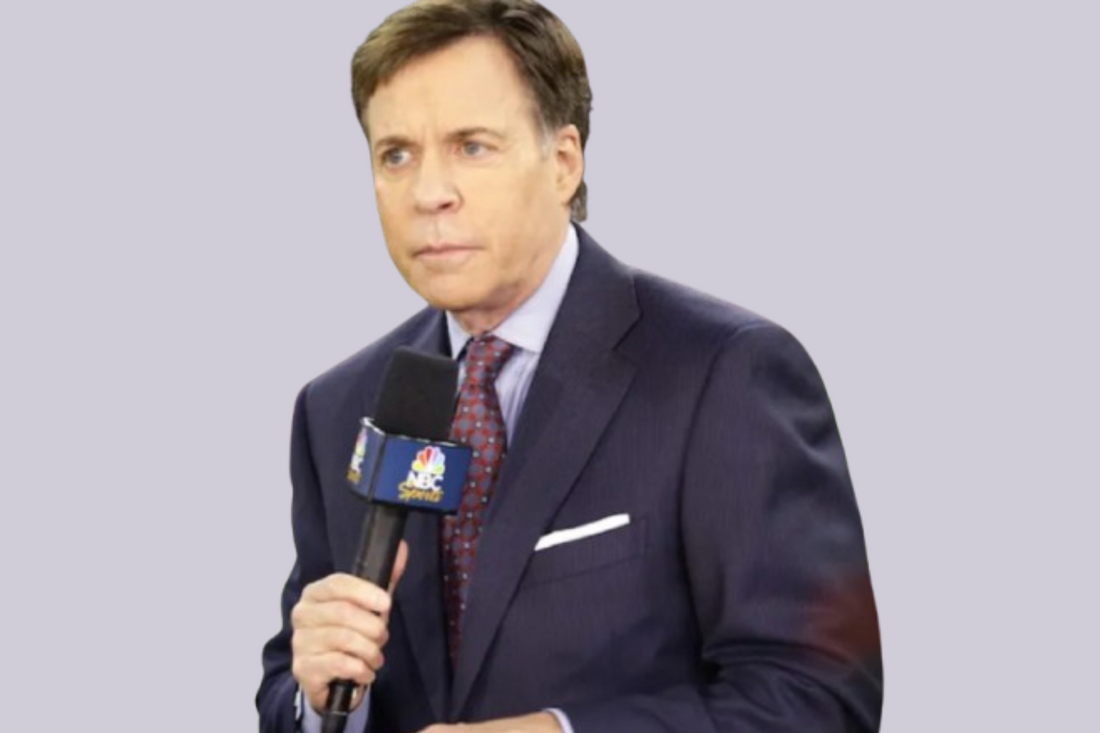
Why did Bob Costas Stop Hosting the Olympics?
By Jayson Panganiban August 01, 2024 05:42
An instantly recognizable figure in sports broadcasting for decades, Bob Costas has been a staple of Olympic coverage on U.S. TV screens. His run as NBC's lead Olympic host has profoundly influenced how the Games are turned into viewer-friendly entertainment. In 2017, Costas decided to hang it up after a lifetime of experience. In this article, we will analyze the events leading up to Costas' retirement as Olympic host, and much more.
History With the Olympics
Costas first worked for NBC during the 1988 Summer Olympics in Seoul, serving as late-night host. His connection with viewers and conversational analysis made him the easiest voice to consume in sports broadcasting. Costas has hosted a record 12 Olympic Games throughout the years, including the Summer Olympics in Barcelona (1992), Atlanta (1996), and Sydney (2000), as well Winter Games in Sochi (2014) and Pyeongchang (2018). His reporting was a mix of journalistic ethics with affection and respect for the athletes who made him popular among sports viewers.
In addition to being the announcer, Costas' hosting role included essay writing and interviewing, which demonstrated his unique ability to capture much of what was emotional about the Games. His work helped to transform NBC's coverage of the Olympics into a ratings juggernaut and highly lucrative television event.
How He Left
When he was replaced as NBC's prime-time host for the Olympics in February 2017, Costas disclosed his plans on the "Today" show. The decision was a surprise partly because of his prominent role in covering iconic moments like Michael Phelps' final races and Simone Biles at the 2016 Summer Olympics, where he delivered standout performances last month during NBC's coverage of the Rio Games. He said, "It just felt to me like this was the right time - that I should do it while people are still saying nice things instead of waiting for someone at some point in times say [that] maybe he's lost a step."
Although the network cast Costas' departure as voluntary, it occurred during the general upheaval in NBC's production plans and priorities. The move marked a change in strategy by the network that desired to give its Olympics coverage fresh faces, as evidenced by Tirico's hiring for Rio 2016. Even Costas admitted that the format of Olympic broadcasts had largely morphed into something less open than when he began.
Possible Reasons For His Departure
NBC Production Plans Shift
NBC has considerably changed its strategy regarding how the Olympics are covered. The network has become more interested in achieving high Q ratings and long sequences of on-the-ground live event coverage at the expense of nuanced storytelling. That target may go against Costas' expressed desire to do more in-depth commentary and interviews, however, lowering the utility that his current role offers.
Health Issues
Costas has dealt with health issues before, including an unfortunate case of viral conjunctivitis during the Sochi 2014 Winter Olympics, which prompted him to take several days off. He did not give his health as a primary reason for leaving, but the experience could have weighed on him in deciding to walk away from such an intense job, one that demanded upward of 80 hours weekly and also frequently took him around the world.
Changing Audience Preferences
Viewers today expect a consistently high level of quick, dynamic coverage of individual sporting events. In this growth period, Tirico is believed to have influenced NBC's decision; the analyst is known for his ability to relate with a younger demographic as well. Costas' old-school approach to broadcasting may have yet to mesh well with the network's current vision.
Controversies and Issues
Costas has never shied away from controversial topics in his career, especially regarding the NFL and player safety. His honesty could have also caused tensions with network execs, itself an understandable consideration. Though there's no direct proof these controversies directly led to his departure, they may have factored into the network's decisions.
How Costas' Absence Will Affect NBC's Coverage
NBC feels the loss of Bob Costas from Olympic coverage. His blending of storytelling and connection with the viewer was a new level for the Olympics. While Tirico is a talented broadcaster in his own right, he inherited the massive shoes left behind by Costas, and fans have been hit or miss about his debut.
Life-long viewers flocked to express nostalgic memories of Costas who focused more on the humanity and heart in sport. Many critics have accused the more commercial and faster-paced format of diminishing the intimate bond Costas built with his audience. Ratings for the next few Olympics fluctuated as NBC struggled to keep viewers engaged without a centerpiece like Costas.
Legacy and Reputation
His role in sports broadcasting will become a standard upheld by future hosts, and his effort to enhance that experience for those who watch it from home is acknowledged with accolades more than any other person. Costas retiring from NBC is hardly a decline; it's simply the end of an era in sports media.
In interviews, after he stepped down, Costas thanked NBC for his time there and stressed that walking away from the Olympics did not mean retirement. He also maintains a presence in broadcasting, appearing on MLB Network and other platforms that allow him to spread his wings with longer-form programming and analysis more closely linked to his passions.
NBC has missed him in its Olympic coverage, but he left a legacy as one of the early and leading TV sports announcers. In an ever-changing sports media landscape, Costas's legacy will serve as a reference point for generations to come.


































































